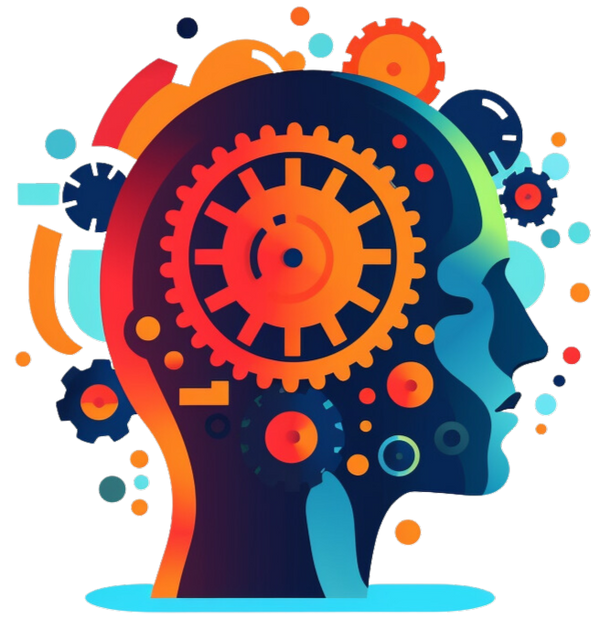
Too loud and too much: When noises become torture
Share
A cell phone rings. Someone is loudly chewing an apple. Trucks are driving by outside. What are perfectly normal sounds for many people are almost unbearable for others. People with ADHD, autism, or Asperger's syndrome, in particular, often perceive sounds much more acutely . This can be stressful and distracting in everyday life. But there are also clever solutions to the problem.
ADHD: Noises distract from the task
People with ADHD have difficulty concentrating on one thing when the environment is loud or hectic. They also hear even the smallest noise . A humming refrigerator or the ticking of a clock can be disturbing. Noise that is perceived as unpleasant quickly makes them tired and restless. Conversely, a freely chosen "feel-good soundscape" can actually promote concentration. These include natural sounds, music—or, as contradictory as it may sound, even a favorite café with the same constant backdrop of chatting customers.

Many neurodiverse people have what's known as misophonia . This means that certain noises—like chewing or breathing—make them really angry or nervous. This can become so severe that they withdraw from other people or can no longer concentrate in certain work areas.

Autism: When sounds really hurt
For people with autism, it's often even more extreme . Not only can they hear everything, but many sounds feel truly painful. For example, a car driving past can sound like a plane taking off right in their neighborhood.
If too many noises are present at once, it can lead to what's known as a meltdown or shutdown. A meltdown is a strong emotional outburst – the person screams, cries, or appears very angry inside. A shutdown is the opposite: The person withdraws, stops talking, and seems to be "switched off."

Asperger: Problems with certain noises
People with Asperger's autism often have difficulty with very specific sounds and noises . It's not about the volume, but rather individual frequencies – like the buzzing of a fly or high-pitched, shrill voices. Such stimuli can almost drive them crazy. They can then barely concentrate on anything else.
To protect themselves, many avoid such situations or wear headphones or earplugs. They often plan their days carefully and need quiet places to retreat to.
The aforementioned "hypersensitivity" may be a weakness today. According to the hunter-farmer theory, it may have been essential for survival in the past. Not only for this "hunter caste," but especially for the rest of the tribe—which owed its survival primarily to the hunters.
What helps? – ANC headphones and pleasant sounds
A great help for neurodiverse people are special headphones with "Active Noise Cancelling" (ANC) . These headphones use small microphones to monitor ambient noise and then (almost simultaneously) generate frequency-shifted "counter-noise" that significantly reduces the background noise or (seems) completely disappears. This creates a quieter environment – even in noisy environments.
Many people also use these headphones to listen to sounds/tones they find pleasant. For example, natural sounds (ocean, rain, forest, etc.), favorite music, or even so-called " white noise " – a steady, constant noise. This helps them concentrate better and relax internally.
Further help: Therapy and more consideration
In addition to technology, therapies can also help. In occupational or behavioral therapy, people learn how to better cope with the many stimuli. They practice how to protect themselves from them in everyday life or how to calm down after excessive noise.
Society can also help. Some supermarkets, for example, have a "quiet hour": During this time, the lights are dimmed, music is turned off, and there are no announcements. This allows people who are very sensitive to noise (such as those with autism) to shop in peace.
Conclusion: Technology and greater understanding are beneficial
Noise sensitivity isn't just "being bitchy" or "reacting sensitively." For many neurodiverse people, it's a real challenge that weighs on them every day . People with ADHD or autism therefore need more understanding – at school, on the bus, at the office, or at home.
In open-plan offices, this may mean allowing employees a small meeting room. Some companies already have such "quiet spaces" for one or two people. Or they may be generous with the idea of "working in a café" or working from home. Productivity doesn't suffer as a result—quite the opposite. Once people with ADHD are in a state of hyperfocus, they can demonstrate tremendous productivity for hours .
Technical aids such as ANC headphones , quiet places and more consideration in everyday life can make a big difference.

If we all listen better and take seriously how others feel, life will be easier for everyone. Moreover , neurotypical and neurodiverse ways of dealing with noise will ideally complement each other . A "I couldn't work here" from someone without ADHD becomes, for someone with ADHD, "Yes, I set up an entire project in this cafe."
